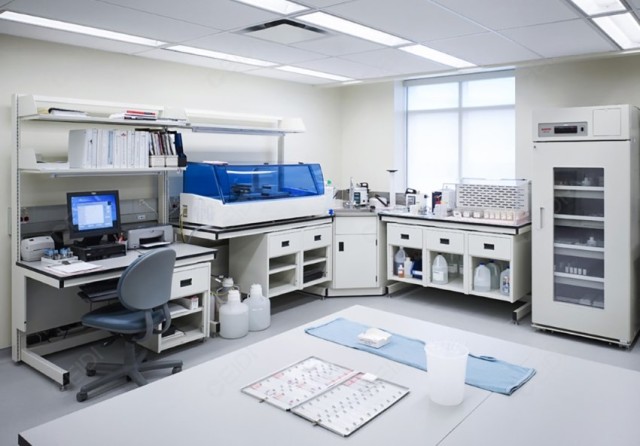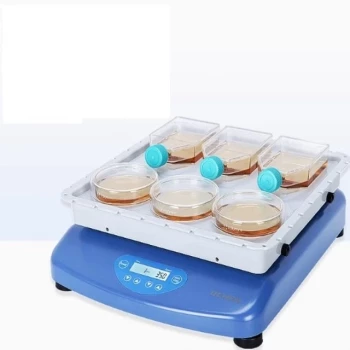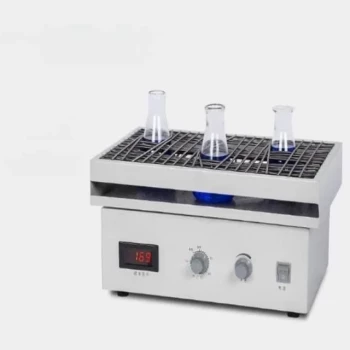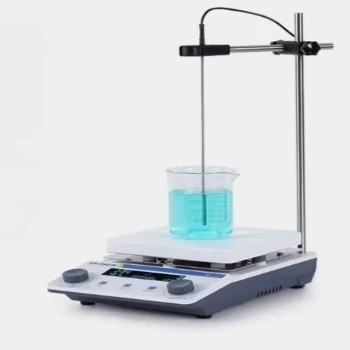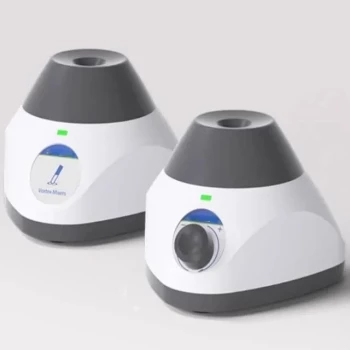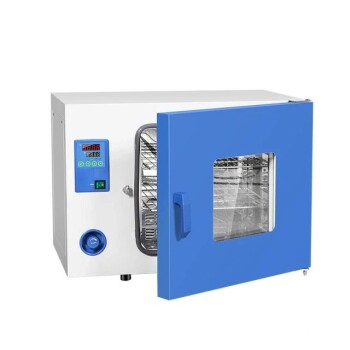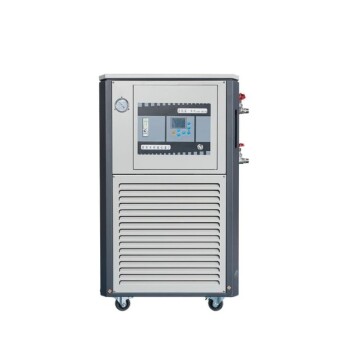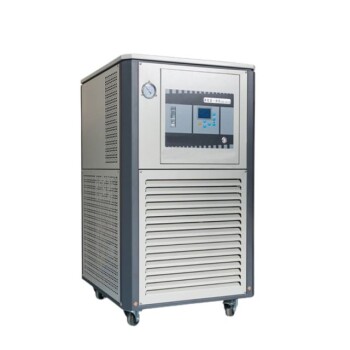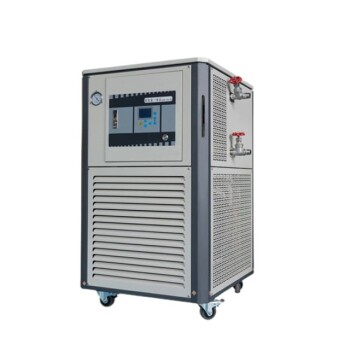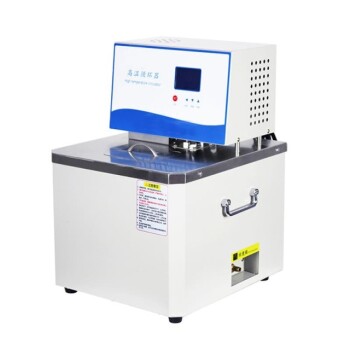温度制御インキュベーター
生化学用インキュベーター
生化学用インキュベーターは、洗練された双方向温度制御システムを装備しており、冷蔵と加熱の両方の機能を可能にしています。この二重機能により、様々な実験用途に不可欠な正確な温度調節が可能になります。インキュベーターの温度制御機能により、安定した条件を維持することができ、低温恒温試験、培養試験、環境試験などに不可欠です。

低温恒温試験では、生化学用インキュベーターにより、サンプルを安定した所定の温度に保つことができ、正確なデータ収集と分析に不可欠です。培養試験では、インキュベーターは微生物の成長と増殖に最適な環境を提供し、微生物の挙動や特性に関する詳細な研究を容易にします。さらに環境試験では、インキュベーターがさまざまな環境条件をシミュレートし、さまざまな要因が生物学的プロセスにどのような影響を与えるかを研究者が理解するのに役立つ。
生化学インキュベーターの多用途性は、微生物学、生化学、環境科学など、幅広い科学分野での応用によってさらに際立つ。その堅牢な設計と精密な制御機構により、学術・産業両方の研究環境において不可欠なツールとなっています。
インキュベーター
カビ用インキュベーターは、閉鎖空間内の環境条件を綿密に制御することで、生物や植物の成長を促すように設計された特殊な実験装置です。これらのインキュベーターは、温度と湿度の正確な制御が重要な、様々な生物学的および微生物学的研究用途に不可欠です。

最適な生育条件を実現するため、カビ用インキュベーターには、温度と湿度の両方を微調整できる高度なシステムが搭載されています。この精度は、通常4~6時間という比較的短い時間枠の中でカビの培養を確実に行うために不可欠です。このような特定の条件を設定し維持する能力は、成長プロセスを加速させるだけでなく、実験結果の均一性と一貫性を保証する。
さらに、金型インキュベーターが提供する閉鎖環境は、研究データの完全性を維持する上で最も重要な外部要因による汚染を防ぐのに役立つ。このように管理された環境は、繊細な生物を含む研究や無菌環境を必要とする研究において特に有利である。
まとめると、金型インキュベーターは、正確に制御された条件下で生物や植物を培養するための信頼性の高い効率的な手段を提供し、それによって様々な科学的調査をサポートする、研究室にとって不可欠なツールなのです。
二酸化炭素インキュベーター
二酸化炭素インキュベーターは、細胞や組織の体外培養用に特別に設計された先進的な実験装置です。生物体内の細胞や組織の自然な生育環境を緻密に再現し、増殖や研究に最適な条件を提供します。

この特殊なインキュベーターは、正確な温度と湿度レベルだけでなく、調節されたCO2濃度を含む制御された雰囲気を維持します。これは、細胞の生存性と増殖に必要なpHバランスを維持するために極めて重要である。この装置には高度なセンサーと制御システムが装備されており、これらのパラメーターが安定し、培養される特定の種類の細胞や組織にとって最適な範囲内にあることを保証する。
さらに、二酸化炭素インキュベーターは、生物学研究のための包括的なシステムを構築するために、他の実験装置と組み合わせて使用されることも多い。例えば、自動給餌システム、イメージング技術、データロギングツールと統合して、細胞培養研究に総合的なアプローチを提供することができる。この統合は、研究プロセスの効率を高めるだけでなく、実験結果の正確性と信頼性を保証する。
まとめると、二酸化炭素インキュベーターは、試験管内細胞・組織培養に比類のない精度と制御を提供する、実験装置の重要なツールとして際立っている。生体の複雑な状態をシミュレートするその能力は、バイオテクノロジー、薬理学、再生医療などの分野の研究者にとって不可欠なものとなっている。
電気定温インキュベーター
電気式恒温インキュベーターは、科学研究や工業生産の領域、特に医療・健康、製薬、生化学、農学などの分野で、礎石としての役割を担っています。この多目的な装置は、細菌培養、発酵、恒温試験を容易にするよう綿密に設計されており、様々な生物体の培養と分析の成功に不可欠な正確な環境条件を保証します。

医療・健康分野では、電気恒温インキュベーターは、診断検査やワクチン開発に不可欠な細菌培養の成長と維持に重要な役割を果たしています。同様に製薬業界では、抗生物質やその他の医薬品化合物の製造に必要な発酵プロセスを助けます。生化学や農業科学の分野でも、安定した温度を維持する能力の恩恵を受けており、一貫した信頼性の高い実験結果を可能にしている。
電気定温インキュベーターは、単に生物学的サンプルのための受動的な容器ではなく、科学的プロセスの積極的な参加者であり、内部の条件が研究される生物のニーズに完全に適していることを保証します。この精度は高度な温度制御機構によって達成され、外的変動に関係なく一貫した環境を維持できるため、実験結果の再現性と信頼性を高めることができる。
さらに、単に温度を維持するだけでなく、光や湿度、さらには制御されたガス環境など、さまざまな特殊な培養ニーズにも対応します。このような適応性により、電気式恒温インキュベーターは、正確で一貫性のある結果が最も求められる現代の研究室において、非常に貴重なツールとなっている。
特殊インキュベーター
光インキュベーター
光インキュベーターは、バクテリアやカビを含む多様な微生物の培養と繁殖のために設計された特殊な実験装置です。温度制御のみに依存することが多い他のインキュベーターとは異なり、光インキュベーターは温度と光の両方を統合的に制御し、微生物の増殖により総合的な環境を提供します。

光インキュベーターの内槽は通常、エンジニアリング・プラスチックかステンレス鋼で作られている。この素材の選択は、いくつかの理由から非常に重要である:
-
エンジニアリング・プラスチック:耐薬品性に優れているため、化学反応のリスクなしにさまざまな微生物培養物を入れるのに理想的です。また、表面は滑らかで、洗浄やメンテナンスが容易で、培養物間の二次汚染を防ぐのに不可欠です。
-
ステンレス:耐久性と耐腐食性で知られるステンレス鋼は、インキュベーターが実験室での頻繁な使用の厳しさに耐えられることを保証します。また、インキュベーター内の温度を一定に保つために不可欠な、効率的な熱分布も促進します。
これらの素材は、インキュベーターの寿命と機能性を保証するだけでなく、培養プロセス全体の無菌性と効率性にも貢献します。
人工気候チャンバー
人工気候チャンバーは多目的な実験ツールとして、生物学的および環境学的研究を幅広く促進します。主な用途は以下の通りです。 発芽および苗の栽培 自然の生育環境を模倣した制御条件を提供することで、植物繁殖の成功率を高めます。さらに、チャンバーは次のような用途にも役立つ。 組織および微生物の培養 安定した無菌環境を提供し、様々な生物標本の成長をサポートする。

昆虫や小動物を研究する 昆虫や小動物 人工気候室は、異なる気候条件をシミュレートできる制御された生息環境を提供し、行動や生理学的反応の観察や分析を助けます。この機能は以下にも及びます。 水質分析 水質を評価する上で重要なパラメータである生物化学的酸素要求量(BOD)の測定に使用される。
このような特定の用途以外にも、人工気象室は以下のような用途に使用されています。 一般的な人工気候試験 さまざまな環境条件を再現し、さまざまな気候シナリオのもとで材料、製品、システムの性能と耐久性を評価します。このように幅広い用途に使用できるため、学術研究および産業用途の双方において不可欠な資産となっています。
恒温恒湿槽
恒温恒湿試験機は、さまざまな環境条件をシミュレートするために設計された、材料科学と工学において不可欠なツールである。この恒温恒湿槽を使用することで、研究者はさまざまな温度・湿度設定下で材料の性能を評価し、熱、寒さ、乾燥、湿気などの条件に対する材料の耐性をテストすることができます。

材料を制御された環境ストレスにさらすことで、科学者はこれらの材料が実際のシナリオでどのような挙動を示すかを予測することができます。例えば、実験室での極端な高温多湿条件下で優れた性能を発揮する材料は、熱帯気候や直射日光に長時間さらされる環境でもその完全性を維持できる可能性が高くなります。
恒温恒湿槽の多用途性は、材料試験だけにとどまらない。微生物、植物、その他の生物学的試料の成長と研究に必要な環境条件をシミュレートできる生物学的研究にも採用されています。この能力は、農業、製薬、環境科学などの分野で貴重な資産となっている。
まとめると、恒温恒湿試験機は単なる装置ではなく、複数の科学分野にまたがる重要な研究開発活動を促進する洗練されたツールなのです。
微生物インキュベーター
微生物インキュベーターは、バクテリア、カビ、植物/動物細胞など、多様な微生物を培養するために設計された、特殊な箱型の装置です。生物学研究において、これらの生物が必要とする最適な生育条件をシミュレートするために不可欠な万能ツールです。

温度、湿度、光、二酸化炭素濃度、pHなどの主要な環境パラメーターは、インキュベーター内で綿密に制御されている。この精密な制御により、内部環境が研究対象の生物の自然な生息環境を模倣し、成長と繁殖が促進される。例えば、バクテリアは通常、暖かく湿った環境で増殖するが、カビが増殖するには特定の湿度レベルと光条件が必要な場合がある。
安定した制御環境を維持する微生物インキュベーターの能力は、一貫した結果を必要とする実験にとって極めて重要である。バクテリアの増殖に対する温度の影響や、植物細胞培養に対する二酸化炭素レベルの影響など、インキュベーターはこのような研究に信頼できるプラットフォームを提供する。
まとめると、微生物インキュベーターは、研究者が正確に制御された条件下で様々な微生物を培養し研究するための手段を提供する、研究室環境における礎石となるものである。
嫌気性インキュベーター
嫌気性インキュベーターは、酸素のない環境で増殖する微生物である嫌気性生物の培養用に特別に設計されている。これらのインキュベーターは、チャンバー内の酸素レベルを体系的に除去または減少させることにより、制御された無酸素環境を作り出します。これは、酸素を排除する混合ガスの使用や、チャンバーから酸素を除去する真空システムの使用など、様々な方法によって達成される。

これらのインキュベーターは、厳密な嫌気条件を提供するだけでなく、嫌気性生物の成長と生存に重要な温度を一定に保つ。温度制御システムにより、内部環境は安定した状態を保ち、これらの生物の自然な生息環境を模倣している。嫌気的条件と一定温度というこの二重機能により、嫌気性インキュベーターは、嫌気性バクテリアやその他の微生物の研究が優先される研究室では欠かせないものとなっている。
嫌気性インキュベーターのデザインはシステマティックで科学的であり、チャンバー内の状態を正確に制御・監視できるよう、よく整理された作業エリアが特徴である。これには、酸素と温度のレベルを継続的にモニターし調整する高度なセンサーと制御システムが含まれ、培養される生物にとって最適な条件が維持されるようになっている。また、システム化されたレイアウトは使いやすく、研究者はデリケートな嫌気性環境に対する妨害を最小限に抑えながら、効率的に実験を行うことができる。
振動インキュベーター
振動インキュベーターは、生物サンプルの培養用に設計された特殊な実験装置です。静的な環境を維持する従来のインキュベーターとは異なり、振動インキュベーターは、自然の生息地における水の動きのような自然条件をシミュレートするために、穏やかな揺動運動を組み込んでいる。この動きは、ある種の細胞、特に栄養分の分配や老廃物の除去を促進するために攪拌を必要とする細胞の成長と発達にとって極めて重要です。

振動インキュベーターの主な機能は、生物学的サンプルの成長をサポートする制御された環境を提供することです。これには、正確な温度、湿度、CO2レベルの維持が含まれ、これらは細胞の生存性と増殖に不可欠である。振動機能は、インキュベーション・プロセスにさらに複雑なレイヤーを追加し、サンプルが最適条件に保たれるだけでなく、穏やかで一貫した動きを受けることを保証する。
振動インキュベーターは、微生物学、細胞生物学、バイオテクノロジーなどの分野で特に有用である。バクテリア、真菌、その他、動的な環境を好む、あるいは必要とする微生物の培養によく使用される。振動の周波数と振幅を制御できるため、研究者は培養条件をサンプルの特定のニーズに合わせることができ、それによって実験の精度と信頼性を高めることができる。
まとめると、振動インキュベーターは単なる静的環境提供装置ではなく、生物学的サンプルの成長を促進する自然条件をシミュレートする動的システムである。そのユニークな特徴により、特に細胞とその環境との相互作用が研究成果に重要な役割を果たすような、様々な研究室環境において不可欠なツールとなっている。
関連製品
- 実験用振盪培養機
- ラボ用多機能小型速度調整水平メカニカルシェーカー
- 実験室用小型恒温加熱マグネチックスターラー
- 効率的なサンプル混合と均質化のための実験用ディスク回転ミキサー
- ラボ用高圧蒸気滅菌器 縦型オートクレーブ
